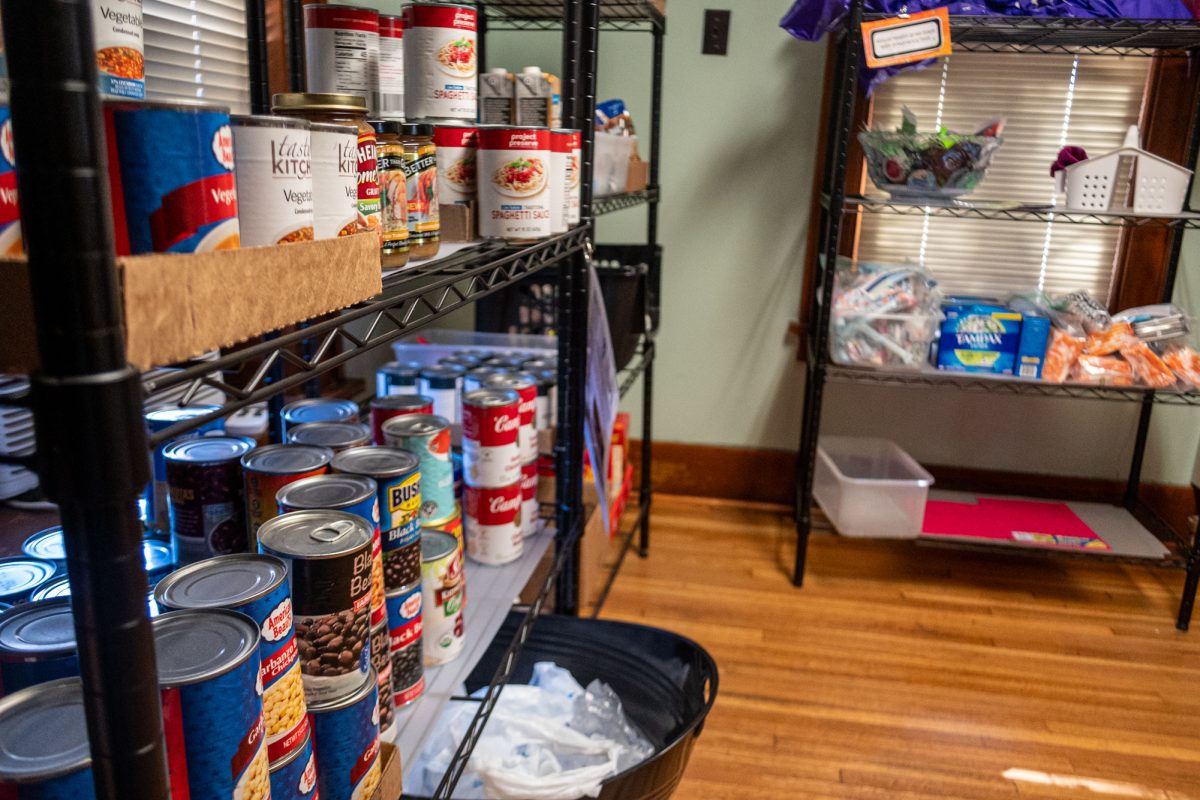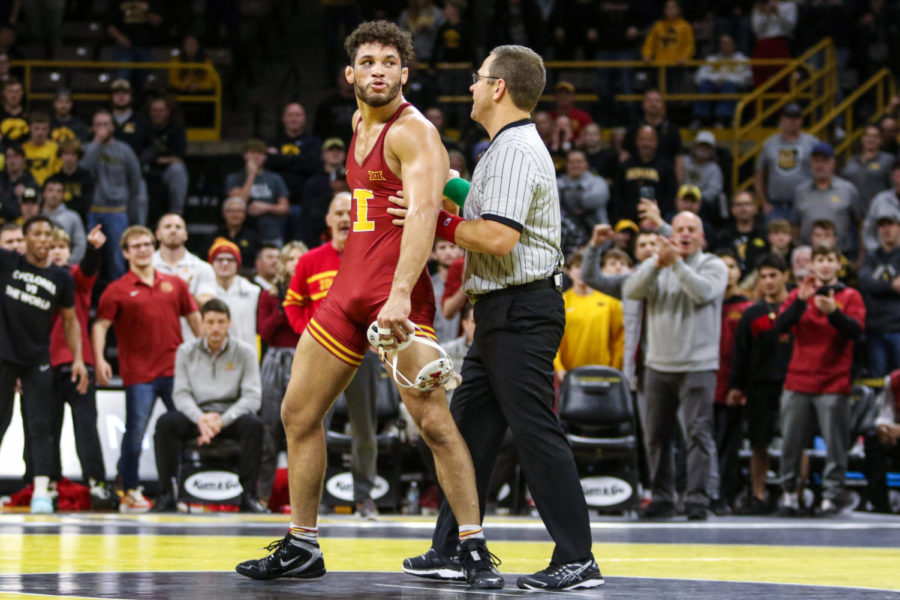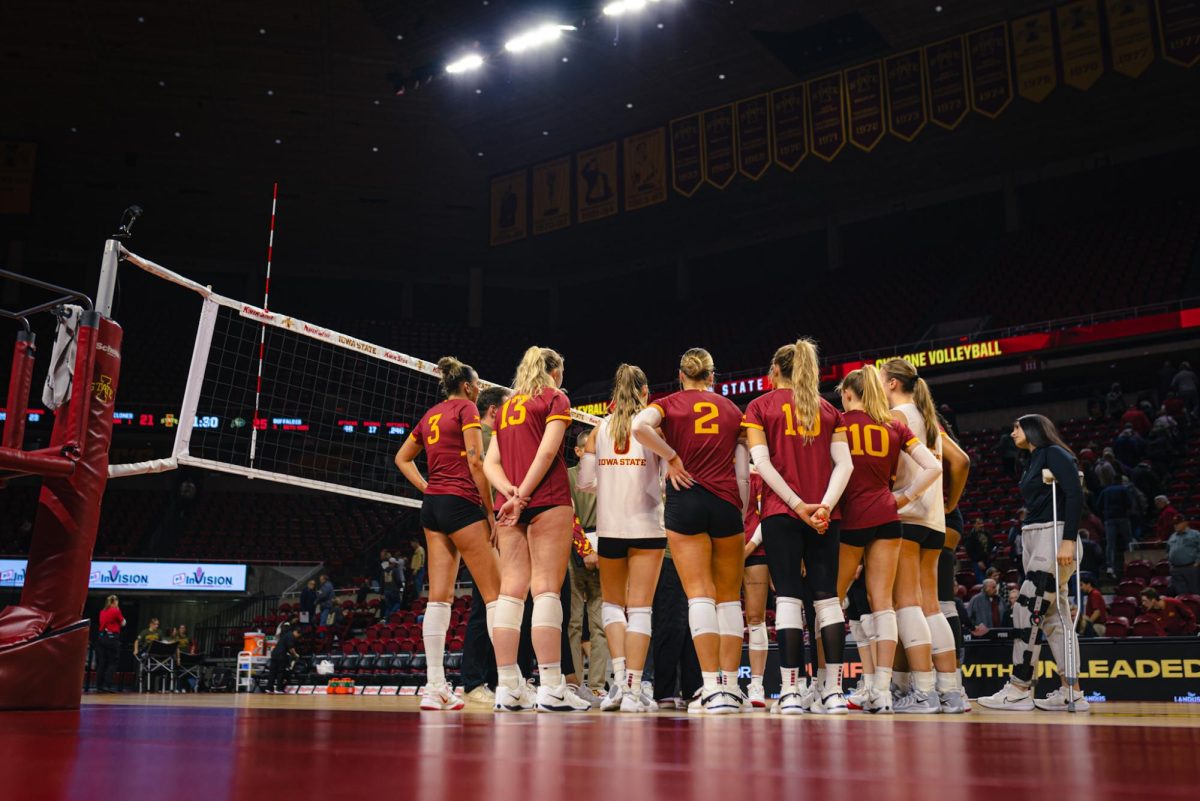EDITORIAL: When fire and brimstone fail
May 19, 2004
Voting isn’t easy. First, you have to decipher your ballot — a task recent experience indicates can be unexpectedly difficult. Then, you have several decisions to make, based upon your careful research into the candidates, their public positions, their contradictions, their missteps (or more likely, their unrepresentative sound bytes).
Oh! We almost forgot: You’d better figure out which politicians’ stances align most closely with the views of your church… or else face the consequences.
The hubbub in the Roman Catholic Church about whether John Kerry will be denied Communion because of his consistent pro-choice advocacy is resurfacing locally, with the Des Moines Diocese stating it will withhold judgment for now about allowing Gov. Tom Vilsack to take Communion or enacting some other kind of penalty. Vilsack vetoed a bill Friday that would have granted fetuses legal status by allowing murder charges in crimes when fetuses die.
Permissiveness toward abortion and homosexuality (among other things) are undeniably steamrolling the worldviews of many Christian churches, and it makes sense that the Catholic Church (or any Christian denomination) is distraught over Kerry’s views.
But the way the Church has responded — particularly those bishops holding out Communion — is categorically foolish and unproductive. One Colorado Springs bishop has gone so far as to say voting for politicians with views divergent from the church should preclude U.S. Catholics from receiving communion.
Let’s step back. The bishop in question, Michael J. Sheridan, wrote in a pastoral letter that a Catholic’s support of legislation or candidates contradicting God’s law “belies his identity as a Catholic.” That part makes sense. It’d be nice to know, though, exactly whom Sheridan likes in politics.
If there’s a hallmark of modern American presidential elections, it’s the old joke about picking the lesser of two evils. It seems unlikely Sheridan or anyone else will find a candidate totally in line with Catholicism’s tenets.
Sheridan’s threat — it seems appropriate to call it that — might also carry more weight if Catholics had ever even remotely represented a uniform voting bloc. Although trying to limit churchgoers from picking only convenient doctrines to follow is a legitimate goal, does anybody really believe this will make the difference, particularly if only certain sectors of the Church take this step?
Cracking down on political sins by withholding communion from Kerry, Vilsack and voters isn’t likely to change any of those people’s views. It’s a wasted, divisive effort that begs the question of motivation: Religious conviction, or political promotion?






